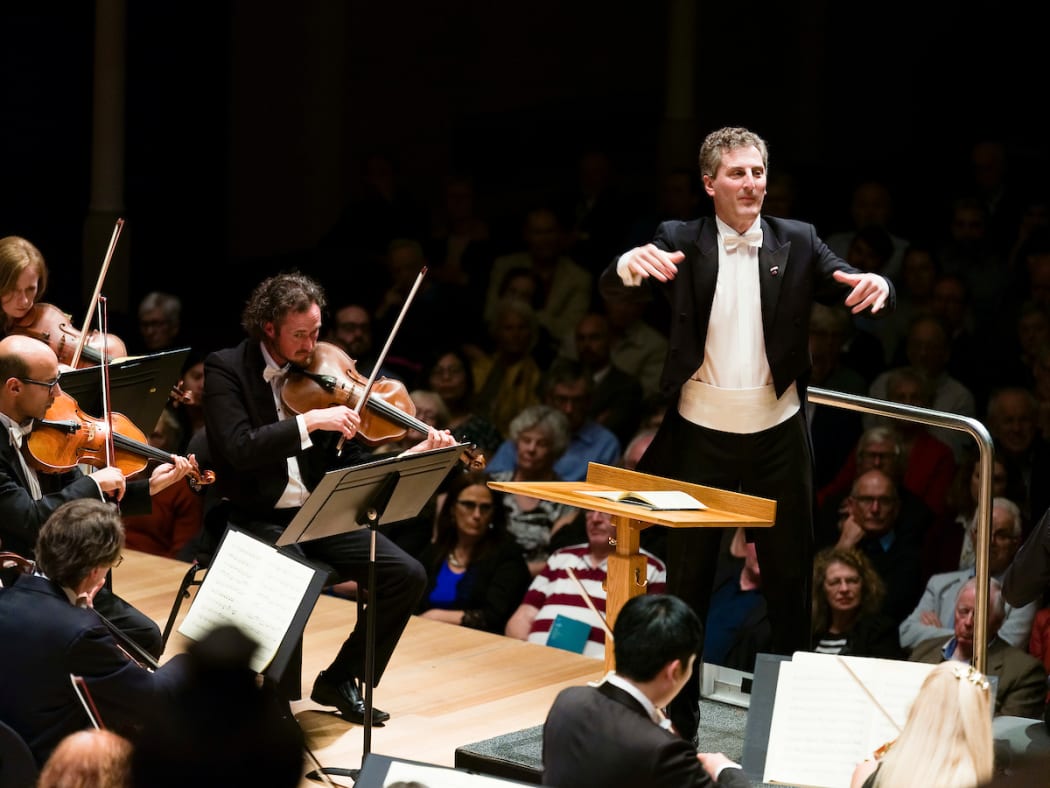The Auckland Philharmonia Orchestra with conductor Giordano Bellincampi performs:
- Gade: Echoes of Ossian
- Dvorak: Symphony No 8
GADE: Echoes of Ossian
Performed by the Auckland Philharmonia Orchestra conducted by Giordano Bellincampi at their Premier Series concert 'Magnificent Mendelssohn'

Giordano Bellincampi conducts the Auckland Philharmonia Orchestra Photo: ©Adrian Malloch
Niels Gade was born Copenhagen and, on the way to being a prolific composer, he began as a violinist in Royal Danish Orchestra.
He wrote his first important work when he was 23, in 1841, and it made his name overnight.
The overture Echoes of Ossian was inspired by Scottish epic poems that claimed to be translations from the Gaelic of tales by the ancient warrior-bard Ossian.
These were very influential in Europe at the time and even the Crown Prince of Sweden, named his first son after an Ossian character, at the suggestion of the godfather, Napoleon.
The melody of the main theme is based on a Danish folk song.
Recorded by RNZ Concert, Auckland Town Hall, 17 February 2022
Producer: Tim Dodd
Engineer: Adrian Hollay
DVORAK: Symphony No 8 in G Op 88
Performed by the Auckland Philharmonia Orchestra conducted by Giordano Bellincampi at their Premier Series concert 'Magnificent Mendelssohn'

Giordano Bellincampi conducts the Auckland Philharmonia Orchestra Photo: ©Adrian Malloch
Compared to his previous sombre symphony, Dvořák's 8th Symphony is definitely genial and upbeat, although with a solemn introduction – that gives way to a birdcall from the flute.
He wrote the work quickly in 1889 at his country home in Bohemia. He was having a dispute with his usual publisher Simrock and as he had recently become quite popular in England, he had the work published by the London firm Novello who wanted to give the G major Symphony the name 'English' Symphony. The name didn't stick.
The Symphony broke new ground from the moment of its premiere, which Dvořák conducted in Prague on February 2, 1890. He explained that he meant it to be “different from the other symphonies, with individual thoughts worked out in a new way.”
This “new way” was Dvořák’s musical transformation of the Czech countryside he loved. Within the music, he included sounds from nature…hunting horn calls and birdsongs played by various wind instruments, along with the folk and Czech elements.
Recorded by RNZ Concert, Auckland Town Hall, 17 February 2022
Producer: Tim Dodd
Engineer: Adrian Hollay

